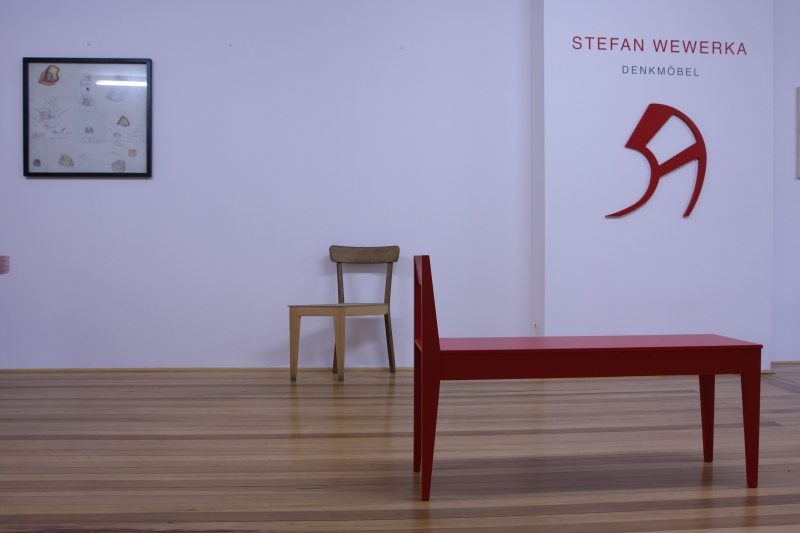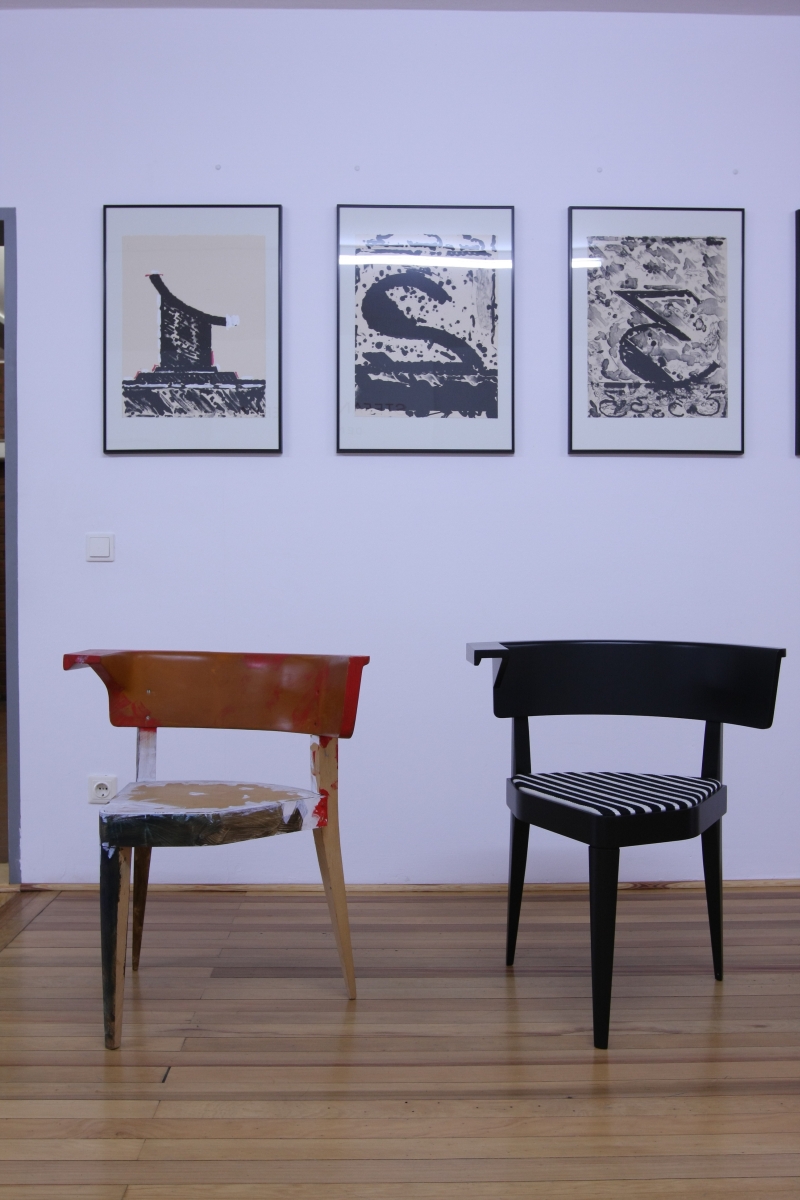Architecture | Designer | Exhibitions and Shows | imm cologne | Passagen Cologne | Producer | Product | Tecta
For their now traditional IMM Cologne exhibition Ungers Archiv für Architekturwissenschaft is presenting an exhibition devoted to one of the more interesting characters in the story of German furniture design, Stefan Wewerka.

Born in Magdeburg on October 27th 1928 Stefan Wewerka studied architecture at the Hochschule für Bildende Kunst Berlin under, amongst others, Max Taut and Georg Leowald, left however without formally graduating. Something which in those days was no hindrance to a career.
In 1950 Stefan Wewerka began working with Wassili und Hans Luckhardt in Berlin before in 1952 he moved to Bonn to be nearer the construction of his Landesjugendherberge project in Bonn-Venusberg. In 1954 he relocated up the Rhein to Cologne to take up a freelance position with Hans Schilling; and despite irregular periods in other cities, notably Berlin, Washington and London, Cologne was to remain his home. And a city very close to his heart.
Greatly influenced by Le Corbusier, Frank Lloyd Wright and Mies van der Rohe, Stefan Wewerka belonged to that generation of modernist architects who became disillusioned with the way CIAM was taking modernism and in 1960 Stefan Wewerka participated in the first Team X meeting along with contemporaries including, Alison and Peter Smithson, Aldo van Eyck and Georges Candilis.
In the early 1960s Stefan Wewerka became increasingly disenchanted with architecture and turned ever more to his passion for abstract art, achieving initial fame and prominence for all with his abstract chair sculptures. Beginning by cutting up basic kitchen chairs and reassembling them, or at least re-contextualising them, Wewerka moved on to experiment ever more with the form and essence of the chair, depriving the chair of its functionality, its raison d'etre. And so exploring in a very rudimentary if fundamental way the question, what is a chair?
In 1977 TECTA owner Axel Bruchhäuser saw Stefan Wewerka's Classroom Chair project and asked Wewerka if he could re-create one for a TECTA exhibition stand. A request that caused Stefan Wewerka to consider if he shouldn't perhaps develop "real" furniture. In TECTA he found an appreciative, supportive and willing partner.
Having spent so long depriving chairs of their function Stefan Wewerka had developed a highly individual perspective of what a chair is, what a chair requires - deconstruction being one of the more profitable paths to construction - and his chair design work reflects this experience
The first Stefan Wewerka collection was displayed at the 1980 Cologne Furniture Fair and included the M1 table and B1 chair, two objects that remain in many ways trademark pieces for Stefan Wewerka's furniture. The cooperation with TECTA continued until the late 1980s and in addition to chairs such as the 1982 Einschwinger, D 20 armchair and B 20 side chair Stefan Wewerka also developed a series of tables, storage systems and the experimental Cella living unit complete with the monumental Kitchen Tree.
From the early 1990s onwards Stefan Wewerka continually expanded the media in which he worked, turning ever more to film, fashion, painting and sculpture.
Stefan Wewerka died in Berlin on September 14th 2013.

That "Denkmöbel" is being presented in the Ungers Archiv für Architekturwissenschaft is more than appropriate.
Both Stefan Wewerka and Oswald Mathias Ungers were actively involved in the free art scene that existed in Cologne in the late forties/early fifties, and first became acquainted with another shortly after Wewerka arrived on the Rhein. In the intervening decades Wewerka not only occasionally worked with and for Ungers but the pair were both important members of Team X.
Presenting a mix of prototypes, finished products, abstract pieces and sketches "Stefan Wewerka - Denkmöbel" provides an all too brief overview of an output that although at times does look formally aged and very much of its era, much like the sound of electronic drums on many mid 1980s pop tunes, in principle embodies all that is essential in furniture design. As an exhibition however it is more than enough to provide an introduction for all those unfamiliar with Stefan Wewerka's work, and to allow those who are familiar with his work to rediscover the subtle genius in the pieces. And because it is an Ungers Archiv exhibition, a table is spread with books allowing one to fill in the gaps and better place the presented works in context.
Visiting Ungers Archiv does involve investing a little more time and effort than that required for most exhibitions during Cologne Design Week. Is however an investment well worth making.
Stefan Wewerka - Denkmöbel runs at Ungers Archiv für Architekturwissenschaft, Belvederestrasse 60 50933 Cologne until Friday January 31st 2014.
Full details, including opening times can be found at www.ungersarchiv.de